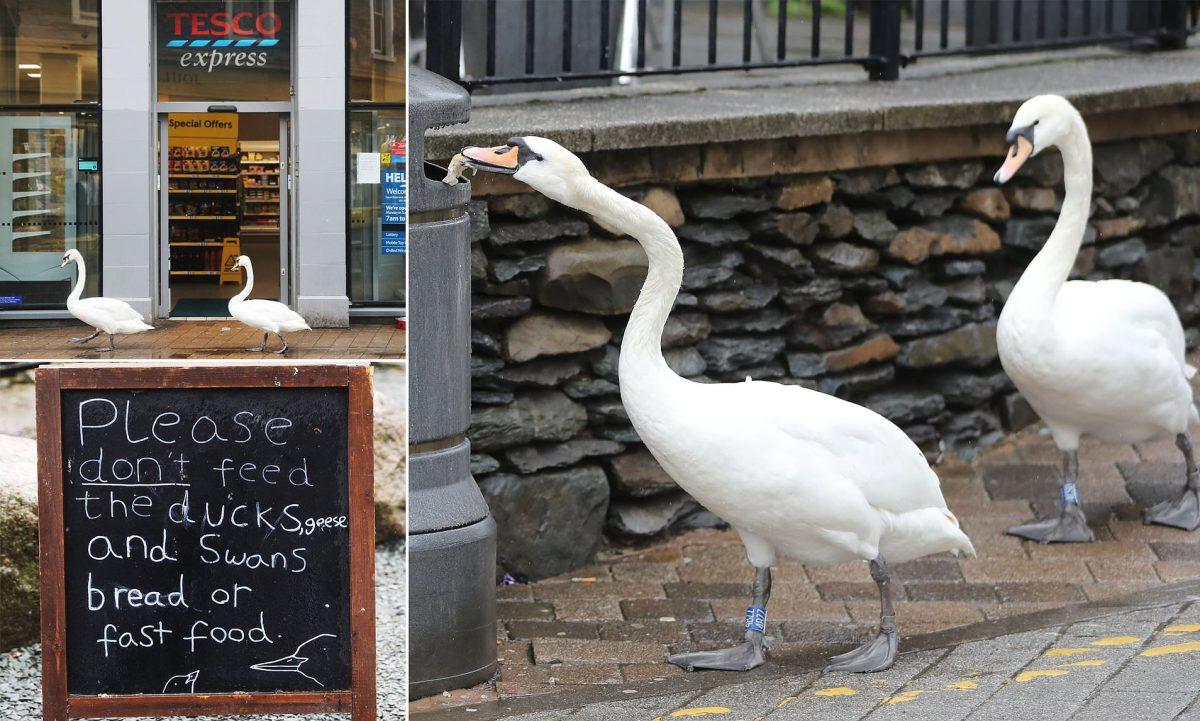It has been declared that fast food is weirdly-delicious and mighty convenient to almost all people in the industrial world. Individuals recognize fast food or “junk food” as that which comes with triple the suet at half the cost, commonly paired with overload packaging and flimsy paper napkins. How interesting that the value meal slaps the brain’s economy and draws in just about every curious individual at one point or another. Highly processed junk foods can affect the brain the same way as drug abuse. As farfetched as this may seem, there is no doubt that this can lead to full-fledged food addiction for a myriad of folks that simply can’t cut back. The science of food addiction is still outstanding, but it probably won’t come as a surprise to hear that food can indeed cause dependency; in fact, it is so irresistible that Swan’s have developed a fatty fix of their own.
Swan’s are recognized for their pugnacious effort in protecting their nests from any form of intruder, however they have no issue wandering into foreign territory in order to feed away at the junk strangers have carelessly abandoned or mindlessly thrown into the streets. These giant birds have been spotted loitering outside of supermarkets, and fast food outlets in Lake District town of Bowness-on-Windermere for quite some time now. One roguish swan even trotted a mile-and-a-half into Windermere town centre to try to finesse its appetite before being returned to the lake. According to Emma Snaith of the Independent. “Some swans have been seen rummaging through bins for discarded takeaway food or packets of half-eaten fish, burgers and chips.” It seems as though they’ve lost their marbles, securing the high street while insisting on being fed.
It is important to note that fast food has an abundance of issues that can marinade in humans over time if consumed more often than not—immediate satisfaction follows but repercussions are insanely vast. Results from over consumption include, and are not limited to: obesity, gout, kidney stones, depression, hypertension, heart palpitations, myocardial infractions, mood swings, headaches, high blood pressure, high cholesterol, dental distress, blood sugar spike, acne, and insulin resistance; however, it is the best thing in the world so we keep munching away. If humans are susceptible to these various effects, then it is only plausible that Swan’s hold similar risks. Due to their body size and framework, fast food has no beneficial means to it, and will only prove to act faster in negatory ramifications.
Area ranger for the Lake District National Park Authority, Marian Jones, advised folks not to feed the birds so that they stray away from dependence on food they are unaware has corruptive qualities. She said in an interview with Snaith, “Just like us humans, it is not good for them—the grease can get stuck to their feathers making it difficult for them to preen, which they need to do to keep their feathers waterproof. Bread can act as an empty filler, so although it isn’t harmful to birds as such, it should only be fed in small amounts as its nutritional value is relatively low.”
According to scientist John Lehrerm—from Psycholgy Today—“animals’ brains release dopamine in response to sugar water, even though they can’t taste it, but not in response to regular water or sucralose.” In the same way, our brains can tell the difference between high calorie foods and diet foods even if they taste entirely the same. Just as Pavlov was able to get a dog to salivate at the sound of a bell, In-n-out spikes your senses anytime you you smell it from the freeway.
For the sake of our health and for the sake of the critters around us, it is best we cut back on fatty foods, dispose and feed responsibly, and ultimately limit our guilty pleasures as best we can.



































